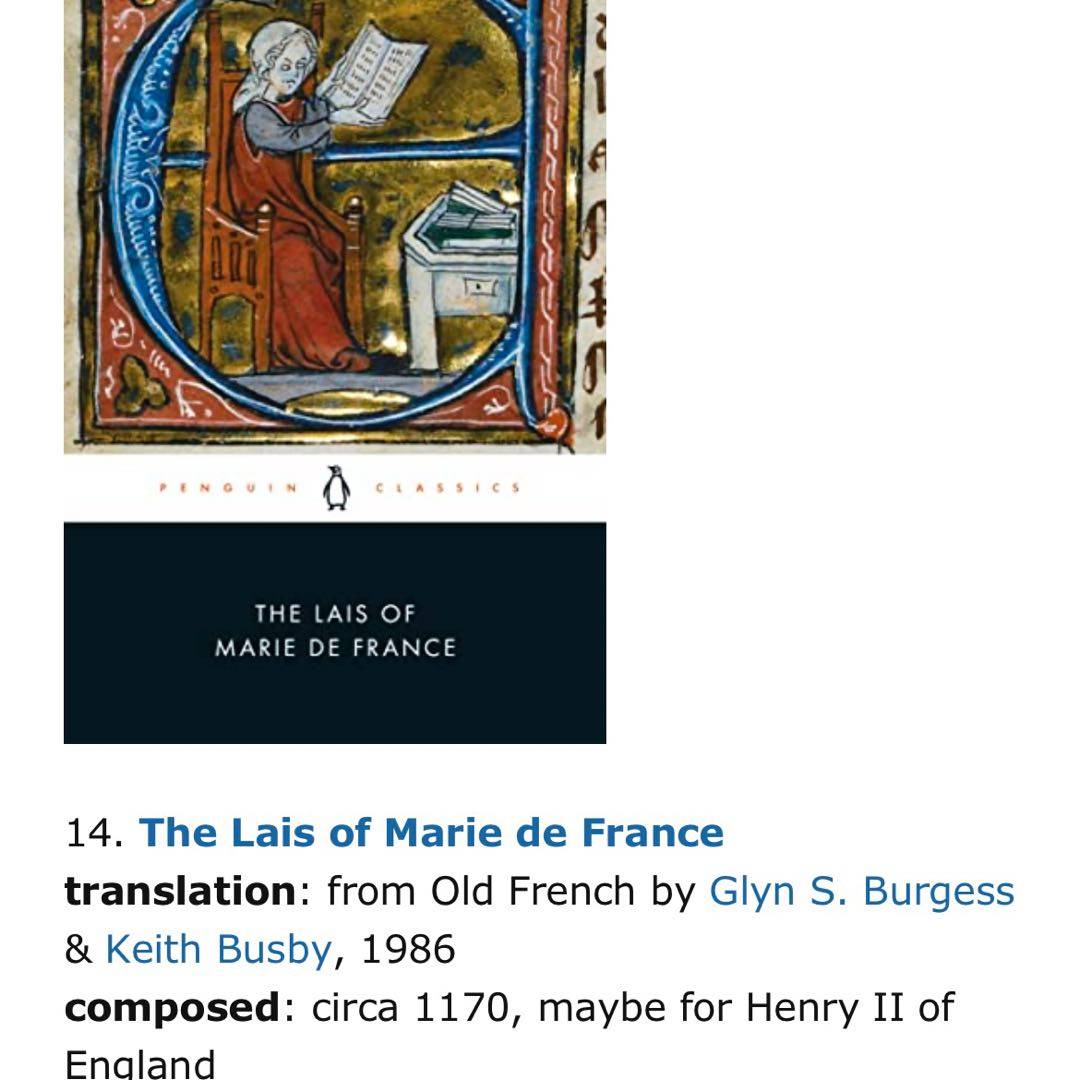
#12booksof2022 April
This little Penguin edition, a spontaneous library checkout, might be a favorite book for 2022.
(Caught up now)

#12booksof2022 April
This little Penguin edition, a spontaneous library checkout, might be a favorite book for 2022.
(Caught up now)
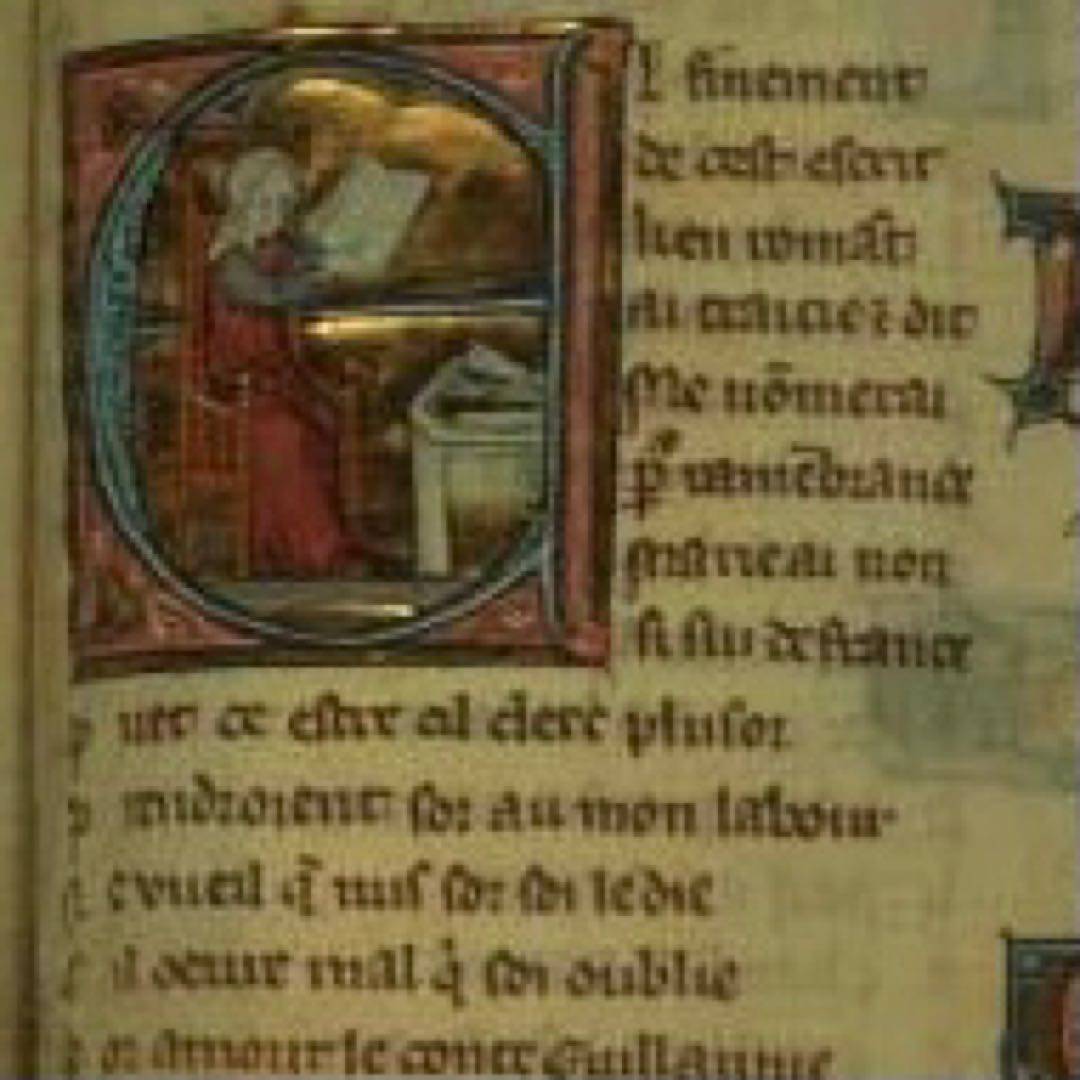
I finished this three weeks ago but neglected to post here. Written in verse for Henry II of England in 1170*, when the English nobility spoke Old French. Knights and damsels and tragic love. And first person commentary by our mystery poet. Fun stuff.
(*maybe)
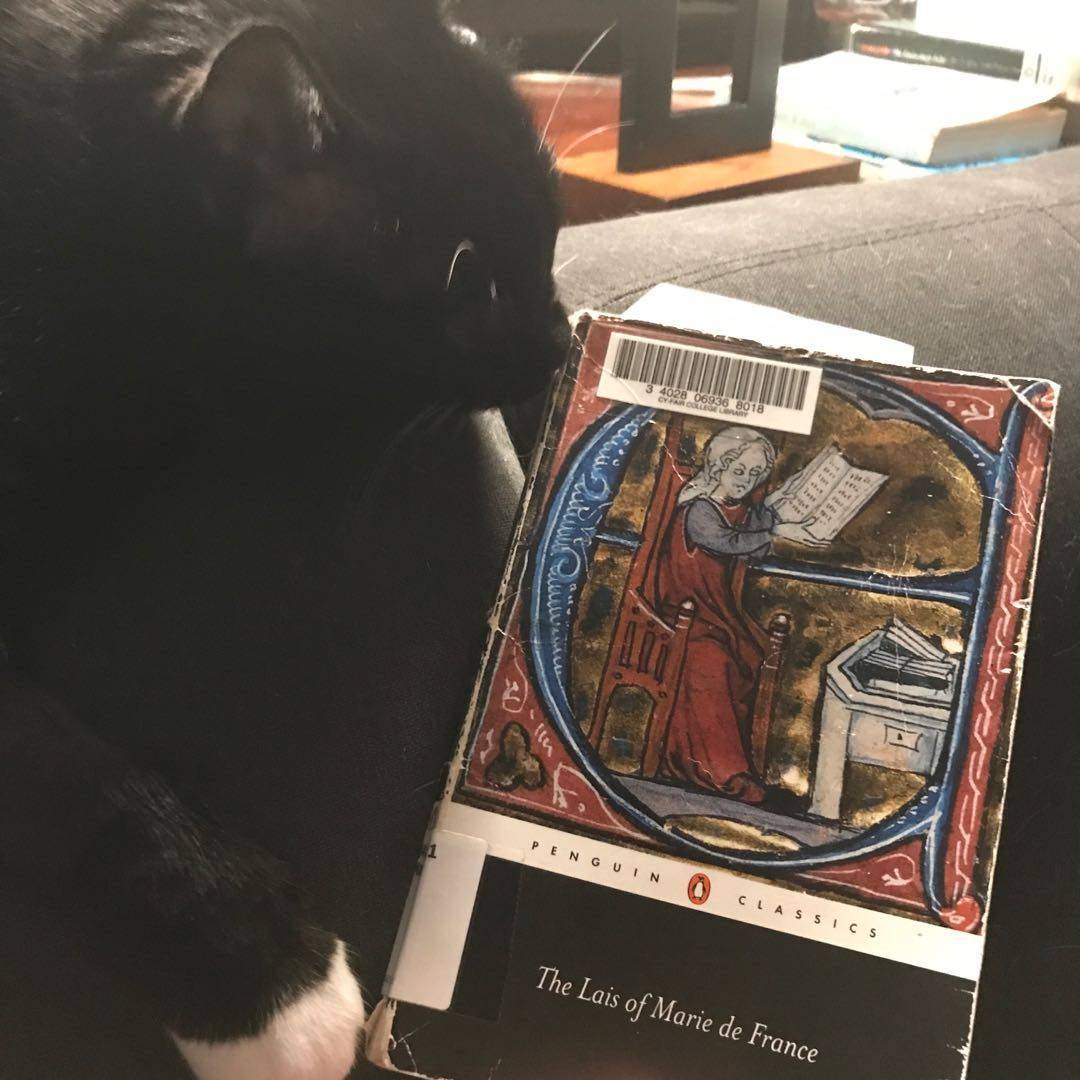
The cat and I are checking out this 12th-century French poet (who was apparently writing for a Plantagenet king of England).
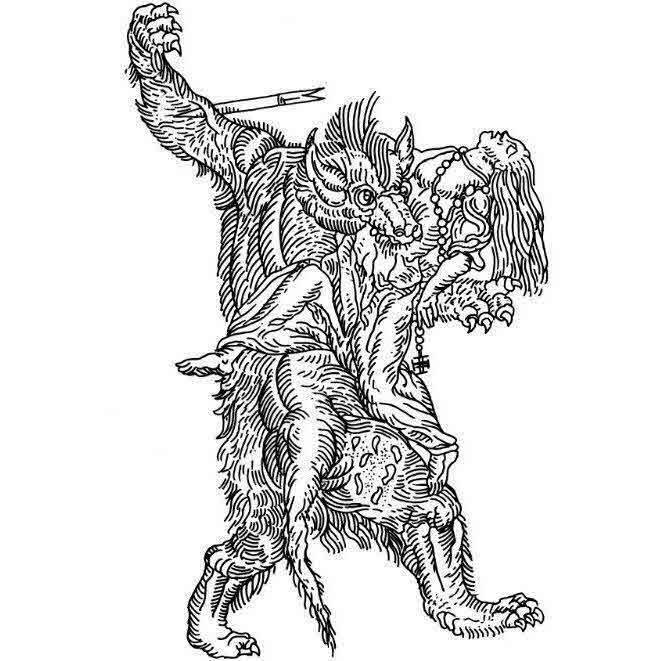
"Amongst the tales I tell you once again, I would not forget the Lay of the Were-Wolf. Such beasts as he are known in every land. Bisclavaret he is named in Brittany; whilst the Norman calls him Garwal.
It is a certain thing, and within the knowledge of all, that many a christened man has suffered this change, and run wild in the woods as a Were-Wolf. The Were-Wolf is a fearsome beast. He lurks within the thick forest, mad & horrible to see."??
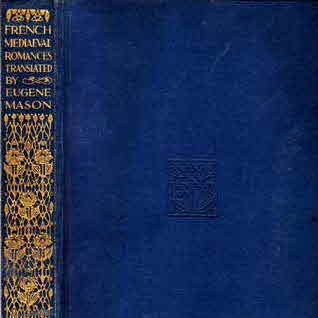
Set mainly in northern France, but with forays into the England and Wales of King Arthur, there are a lot of folklore motifs: the fair maiden sequestered in a tower, to be freed by her gallant lover; mistaken identities; the fairy lady whose love will be lost if she is spoken of; noble children abandoned at birth, fostered by peasants, who inevitably return to claim their inheritance, and so on. 👇🏻👇🏻